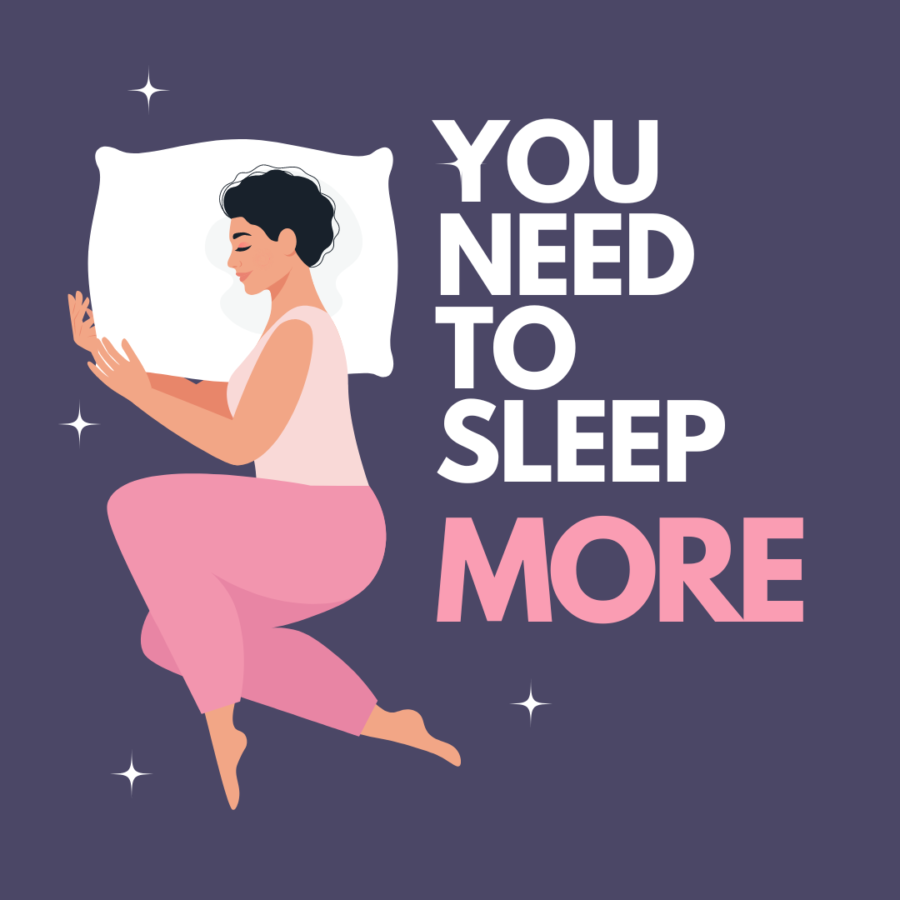Making Sleep a Priority
October 31, 2022
Sleep is a critical body function that is an absolute necessity for a person’s survival, and is defined as a “naturally occurring condition of the mind and body where the nervous system is mostly inactive and the body is paralyzed.”
Some of the important things sleep helps us do include: helps the brain focus, keeps emotions in check, and boosts the immune system. Without sleep, some things that could happen are high blood pressure, a heart attack, diabetes, and early death. Being sleep-deprived can literally shave years off your life.
So what are some questions you can ask yourself to find out if you’re sleep-deprived?
- Is getting out of bed in the morning a struggle?
- Do you need a loud alarm in the morning to wake up?
- Do you sometimes find yourself falling asleep when you don’t mean to?If you answered yes to any of these questions you have at least a bit of sleep deprivation. Some ways to help you gain more sleep are don’t get on any electronics before bed, don’t be in your room/bed unless you are going to bed, not caffeine after 3 pm, and switching up your room. Improving your sleep habits could even help to keep a healthy weight.
The amount of sleep you need depends on your age and the amount of activity you do. To help figure out how much you need I have provided it down below:
Newborns(0-3 months): 14-17 hours
Infants(4-11 months): 12-14 hours
Toddlers(1-2 years): 11-14 hours
Preschoolers(3-5): 10-13 hours
School-age kids(6-13): 9-11 hours
Teenagers(14-17): 8-10 hours
Young Adults(18-25): 7-9 hours
Adults(26-64): 7-9 hours
Elderly(65+): 7-8 hours.
Try some of the strategies I provided above, some might help and they might not. If you constantly are unable to sleep, you should talk to your doctor.































